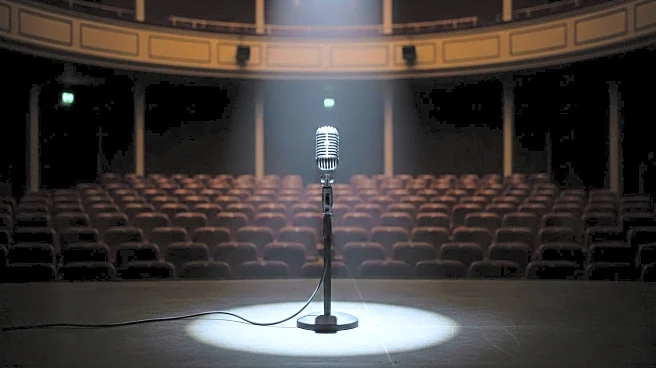What's Happening?
Jimmy Kimmel's late-night show faced backlash after a controversial monologue about Charlie Kirk's assassination, leading to intervention by the Federal Communications Commission (FCC). The FCC reportedly pressured Nexstar Media Group to take action against Kimmel, citing misinformation in his monologue. This intervention has raised concerns about government overreach and the chilling effect on free speech. Critics argue that Kimmel's satirical content should be protected under free speech rights, and the FCC's involvement is seen as an attempt to suppress dissenting voices.
Why It's Important?
The FCC's involvement in Kimmel's show highlights the tension between government regulation and free speech in media. This incident underscores the potential risks of government agencies exerting influence over media content, which could lead to censorship and limit public discourse. The situation raises questions about the balance between protecting public interest and preserving free speech rights. The broader implications for media companies and content creators are significant, as they navigate the challenges of maintaining editorial independence while facing potential government scrutiny.
What's Next?
The controversy surrounding Kimmel's show may prompt discussions about the role of government in regulating media content. Media companies and advocacy groups may push for clearer guidelines to protect free speech while addressing misinformation concerns. The incident could lead to increased scrutiny of government agencies' involvement in media regulation, potentially influencing future policy decisions. As the debate continues, stakeholders may seek to establish safeguards to ensure that media platforms can operate without undue government interference.
Beyond the Headlines
The FCC's intervention in Kimmel's show raises ethical questions about the limits of government power in regulating speech. The incident highlights the challenges of balancing free speech with the need to address misinformation, particularly in politically charged contexts. The long-term impact on media freedom and public trust in government institutions remains uncertain, as stakeholders grapple with the implications of government involvement in media regulation. This development may prompt a reevaluation of the principles of free speech and the role of government in safeguarding democratic values.










